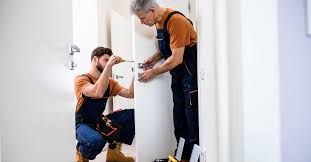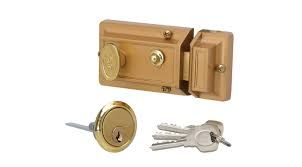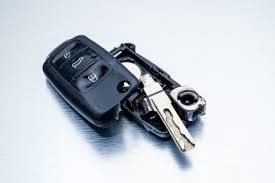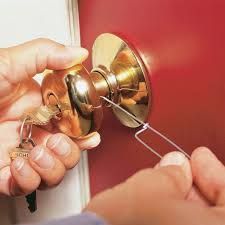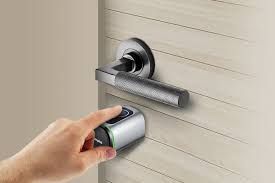A Complete No-Regrets Guide to Hiring a Locksmith
What do you do in a security emergency? Panic or stay calm and thin of the fastest solution? What happens if you get locked out of your apartment and you have no way in? What happens if you’re hurrying for an important business appointment and discover that you locked your keys in the car?
In deep frustrating situations such as these when you need an immediate surgical solution to your problem, call on Brothers Locksmith. You don’t have to panic and yell for help. Keep calm and call Brothers Locksmith. We ensure 24/7 Commercial Locksmith service for the city of Phoenix. We’ve got your back and there’s nothing to fret about.
If you are locked out of the house, replacing the lock may not be the answer. Any lock should be easy to open for an experienced locksmith. Lock replacement is an extra expense that you don’t need.
Locked out from your house? Don’t just agree to replace that lock immediately. A locksmith should not have to do a total lock replacement in order to unlock any door. Replacing your lock will just end up an unnecessary bill.
Be prepared even if you do not foresee needing a locksmith. Do your homework before you are in a pinch, and you can have someone you can rely on if you ever have an emergency. Then, save the number in your mobile phone.
Cover your locks when you are painting. It takes some time to cover the locks, but that takes less time than having them change every one.
Make sure you check with the Better Business Bureau to ensure that you are working with a reputable locksmith. This can help you identify any person trying to scam you. Also, ALOA.org is another great organization that you can check to verify any locksmith you wish to use.
Do not use a locksmith that changes their quote upon arrival. There are too many scammers out there for you off.
One of the first questions you ask when calling a new locksmith is how long their business has been around. You will also want to know how long they have been working in their present location. A decade of experience is truly a sign of competence.
Look for a locksmith who is active within their communities. It helps to ensure that you have a locksmith who stays updated on the latest industry trends. It also helps to tell you out of money.
Check out the good locksmiths in your area before you encounter a problem. Your options narrow if you only look for one when you experience an emergency. This may leave you in trouble.
Get references before allowing a locksmith. Call the references before you engage in business. You not only want the best quality service but also a person you can completely trust.
Shop around. Contact between three and five locksmiths before you hire one. This will give you a reasonable expectation of what the average charge is. You can choose a locksmith with a price that is right.
Be sure to request identification of any locksmith you plan to hire. A good locksmith will gladly show his credentials before beginning to work on your lock.
Ask about the other costs that you will incur. Are all taxes included? Do they offer discounts for veterans or seniors? Will there be milages charges or a fee for an urgent visit added? Make sure that you ask them all of this in advance!
Look for a locksmith well in advance of needing them. Waiting until after an emergency may lead you to hire someone less than savory. You might also end up with someone who is shady have access to your valuables.
Find out what the problem is if you find yourself locked out. Did you leave your keys in your car? This is a lot different from having your keys stolen. The former means just getting through the lock while the latter means replacing all of your locks.
The net is a great resource when you are in the market for a locksmith. A lot of people go online with detail. You can find both good and negative reviews. The good thing is that such reviews can help people decide whom to hire and not to hire.
Try to gauge prices for simple tasks, like letting you into your home when locked out. A locksmith who can quote you fixed rates is a good choice. If they are wishy-washy about the topic, move on to another company.
Beware of any locksmith who claims they must drill out your lock or replace it when you are locked out.
Look for a locksmith that is available around the clock to handle the middle of the night emergencies. Emergencies hit at the worst possible moment, so knowing who to call is key to your success. Ask the locksmith how much these services go for as well. There are certain to be extra costs involved, so it is useful to know ahead of time what to expect.
You can always Google search for the locksmith that is sent to help. Don’t be embarrassed by this – you better than a few locks can. If you’re able to find something out about the person that’s bad, call the company and ask for someone else to come out.
Hire a locksmith with experience in the area where you’re having trouble. For instance, a commercial locksmith may not be the best choice for a car lockout. On the other hand, residential locksmiths may have trouble with commercial locks, such as is found on automatic doors.
Ask if there are additional costs when asking for a quote. Does this price include the tax? Do you they have any discounts for veterans or seniors? Are there more fees attached to things like the urgent service or mileage fees? You must ask for all associated costs before you let them start working!
Research locksmiths before you need one. Trying to find a good locksmith in the middle of an emergency can lead you to make a hasty decision. Instead, locate a reputable one before you need one.
Some have the knowledge to reconfigure your home’s alarm system.
Locksmiths can do more than just open a locked door. They can have your security set-up checked for any flaws or have a safe installed for your valuables. They can make your home or business totally secure.
Sometimes, you may not know the path to take when learning something new. Fortunately, there are many places that you can turn. This article should have helped you figure out how to start your journey. These tricks and techniques are very beneficial for your success.
Call Us Any Time!
